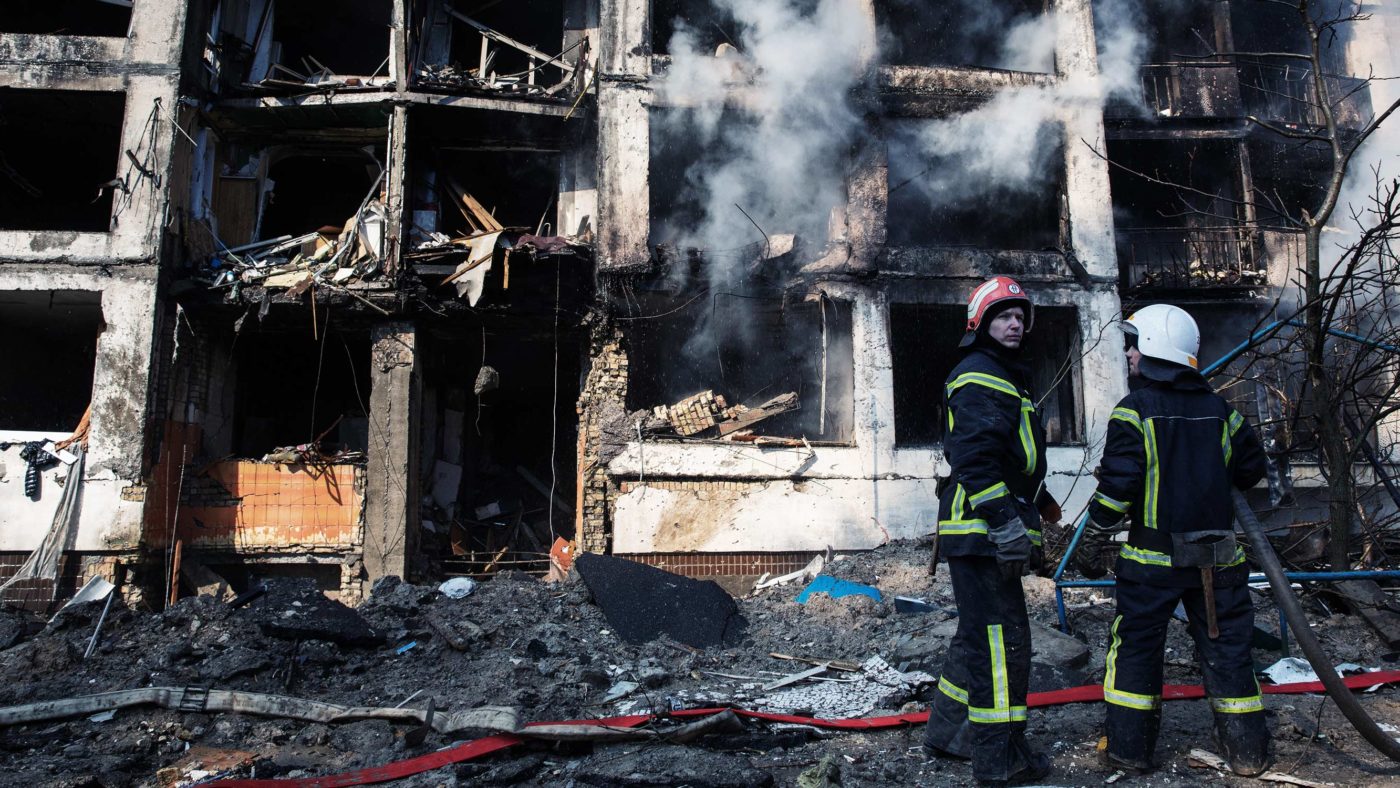Since the beginning of the current conflict, thousands of Western Europeans have opened their homes and their hearts to Ukrainians who have been forced from their cities by the Russian aggressor. Across the continent supplies have been gathered and brought to Polish-Ukrainian border to support those fleeing the unjust conflict in their homeland. This altruistic outpouring is unlike anything seen on the continent in decades. And yet, the support of the people remains unmatched by the support of the state.
The response of Western governments, seems for the most part to have been for the benefit of their home audiences. Since the beginning of the invasion, they have majored on symbolism while offering far too little practical support. And though the rhetoric is undeniably tough, sanctions have too often been skin-deep or poorly targeted.
Germany is among the worst offenders. Olaf Scholz’s coalition government has been astonishingly reluctant to cut itself off from Russian energy supplies – even as every statement that implies their willingness to do so is met with applause. This isn’t entirely Scholz’s fault: he is the heir to a horribly misguided energy policy that has left his country over-dependent on Russian hydrocarbons. Still, the way European leaders line up to praise his leadership even as German money literally funds the Russian war machine leaves a bitter taste.
Likewise, it’s strange to hear the notes of self-congratulation in Berlin over the decision to finally ramp up defence spending. As Europe’s leading economy, it’s remarkable that it’s taken a crisis on this scale to finally commit to the Nato target of spending 2% of GDP on defence, not pride. And even then, the €100bn modernisation effort is unlikely to come online for at least five years.
Perhaps worse still was the Germans’ reluctance to offer lethal aid to Ukraine, even as Russia massed its troops at the border. As the UK was sending thousands of vital anti-tank weapons, German defence apparatchiks could only bring themselves to offer 5000 helmets. Once fighting started, the German defence ministry did provide thousands of Cold War-era ‘Strela’ anti-air missiles – only for the Ukrainians to discover many of them were unusable.
It would be unfair to pin this all on Germany, however. In general the nations of western Europe have not been willing to engage with this conflict in a truly serious way. Take the first round of sanctions against Putin, which included ridiculous opt-outs on luxury goods, diamonds, and fast cars, and a great deal of vacillation about cutting off Russia from the SWIFT payment system. The Ukrainian government asked for anti-air capabilities and a no-fly-zone, too often all they got was thoughts and prayers.
Among both politicians and the commentariat, the brutal attack on Ukraine has far too often been steeped in ‘West-washing’. A crisis in eastern Europe has now become all about the West in the eyes of politicians in Berlin, Paris, and Brussels.
Countless op-eds and opinion pieces have been dedicated to what this crisis means for the West, the prospect of a ‘new Cold War’ and how it will impact the future of the European Union. Others reflect on the silver lining of a revitalised Nato and a European Union acting with one voice – all of which is utterly meaningless to the millions of Ukrainians who just want the war to end and the Russians to get off their land.
And while the uber-federalist MEP Guy Verhofstadt may talk about the necessity of a European Defence Union, does anyone really believe such an entity would have lifted a finger to stop Putin’s aggression, given the reluctance to even ship weapons to help Ukraine’s defence?
Therein lies the core problem. With some honourable exceptions, Western nations have too often offered what they think Ukraine needs, rather than what the Ukrainian government is actually asking for. Why else would Volodymyr Zelensky appear before parliament after parliament urging them to give his country the support it so desperately needs?
On the other hand, eastern European nations who know only too well what Russian aggression means have been notably sharper in their response. The likes of Poland, the Baltic states and the Czech Republic have all been steadfast in their efforts, mobilising every available resource to help their Ukrainian neighbours. The Poles in particular have offered a phenomenal response to the refugee crisis that has engulfed their neighbourhood, taking in over a million people in a matter of weeks with scarcely a complaint.
This week’s visit to Kyiv from the Polish, Czech, and Slovenian prime ministers sent a far more powerful signal to the people of Ukraine, than the French President turning up in a hoody having abstained from shaving for a day. Nor was that visit just symbolic: the three leaders brought with them a promise of weapons, medical supplies, and defensive equipment – all the things the Ukrainians have asked for from the beginning.
There has been little grandstanding among those eastern European countries, but rather a quiet resolve to get things done. At times this position has been frustrating, but ultimately it is starting to pay off. Of all the lessons of this crisis, one of the most obvious is that western European governments should take their eastern European partners’ concerns much more seriously – it’s the least they can do after ignoring their warnings about Russia for so long.
Click here to subscribe to our daily briefing – the best pieces from CapX and across the web.
CapX depends on the generosity of its readers. If you value what we do, please consider making a donation.


